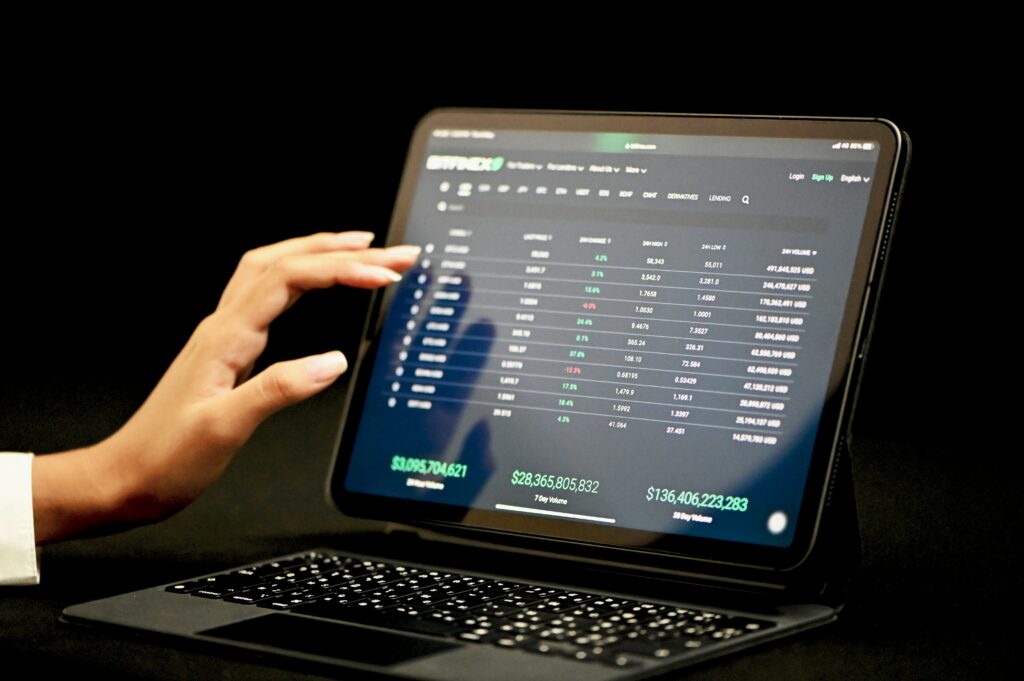Introduction: The Digital Shift in Betting
Betting didn’t just migrate online—it evolved. What used to require a trip to a smoky shop or casino now happens in seconds from your phone. This shift wasn’t accidental. As smartphones became extensions of the hand and internet access went from luxury to default, the betting industry adapted fast. Platforms stopped thinking desktop-first and started designing for mobile screens, swipes, and apps that don’t feel like apps—they feel like games.
Today, betting is more tech company than bookmaker. Real-time data, frictionless interfaces, and 24/7 connectivity are the core infrastructure. From deposits to odds calculation to live tracking, every touchpoint rides on tech. It’s no longer just about placing a bet—it’s about offering a seamless, personalized, and interactive experience. For the industry, technology isn’t optional. It’s the backbone, muscle, and brain behind everything.
Smarter Algorithms, Smarter Bets
Machine learning is now hardwired into virtually every part of the online betting experience. Platforms crunch enormous amounts of user data—betting history, timing, preferences, even device habits—to serve up odds that feel tailor-made. It’s not just about customizing bonuses and promos; it’s about optimizing the entire user journey so that every interaction feels frictionless, just a little too perfect.
And it’s not just the platforms playing this game. Bettors themselves are leaning into predictive analytics. Casual punters and high-rollers alike are using AI-powered tools to model outcomes, spot trends, and tilt the odds in their favor. It’s no longer about gut-feeling bets—it’s forecasting meets gambling, in real-time.
But here’s the catch: all that tailored convenience can slide into manipulation fast. The more personal the experience gets, the harder it becomes to tell where your instincts end and the algorithm begins. It’s a tightrope between smarter betting and slipping into patterns you’re not even aware of. Machine learning builds the illusion of control, but the house—the algorithm—is still running the show.
Mobile Apps and Game-Like Interfaces
The betting apps of 2024 don’t look or feel like casinos—they look like games, sleek finance tools, or social platforms. That’s no accident. Design has become a core feature, not an add-on. Clean UI, fast load times, and frictionless navigation make mobile betting feel effortless, even when stakes are high.
But it’s not just looks. Features like real-time tracking of odds, one-tap cash-outs, and live match overlays keep users glued in. Social sharing buttons are now baked into the experience so bettors can post wins or challenges with minimal effort. Everything is built for speed, convenience, and that subtle dopamine kick.
Then comes the gamification layer. Badges. Leaderboards. Daily streaks. They’re everywhere—and they work. These mechanics reward frequency and volume, nudging users to stay active and keep placing. For better or worse, the line between entertainment and habit is thinner than ever. Betting feels less like a moment and more like a game you’re always playing.
Live Betting & Streaming Integration
Live betting isn’t just about reacting anymore—it’s about anticipating, in real time. With a constant flow of data on player stats, injuries, weather conditions, and betting momentum, platforms are giving users a richer, faster way to place smarter bets. What used to be clunky refreshes is now a seamless stream of updated odds and actionable events.
One major step forward: embedded video. Instead of toggling between apps or waiting for score updates, bettors can now watch the game and wager in the same platform, without missing a beat. It’s frictionless, immersive, and addictive—and platforms know it.
This wouldn’t be possible without 5G and upgraded networks reducing latency to a fraction of a second. In this space, milliseconds matter. Quicker data means instant odds updates. Faster video feeds mean fewer lags and more accurate reads. For the user, it’s not just about speed. It’s about making decisions that feel almost instinctual, helped by the tech beneath them.
The live betting experience is no longer second-screen. It’s front and center. And it’s only getting sharper.
Blockchain and Payment Innovations
For years, slow payouts and intrusive identity checks dampened the online betting experience. Crypto is flipping that script. With decentralized currencies like Bitcoin and Ethereum, users can now make deposits and withdrawals quickly—and without handing over piles of personal data. The appeal? Speed, privacy, fewer gatekeepers.
Beyond fast, anonymous payments, blockchain tech is also carving out trust. Every transaction is logged immutably, offering a transparent ledger anyone can audit. Bettors get peace of mind knowing the house can’t tweak outcomes behind the curtain.
And then there’s efficiency. Cutting out banks and middlemen not only accelerates transactions; it trims fees and friction too. For platforms and users alike, it’s a leaner setup with fewer delays. In a space where seconds matter and trust is currency, blockchain isn’t a gimmick—it’s a game-changer.
AI Moderation and Responsible Gambling
As technology continues to enhance the online betting experience, it’s also taking on a critical role in consumer protection. Artificial intelligence (AI) has become a key tool in promoting safer gambling behaviors by identifying risk early and offering users greater control over their activity.
Smarter Systems for Safer Play
AI-driven systems now monitor user behavior in real time. This means platforms can flag patterns that may indicate risky gambling before they escalate, helping both users and operators take proactive steps.
- Detection of unusual spending spikes or time spent on site
- Monitoring loss-chasing behaviors and frequent bet increases
- Real-time risk scoring based on user history and patterns
Personalized Tools for User Control
Modern betting platforms integrate features that are tailored to individual needs, empowering users to make responsible choices.
- Personalized Reminders: Timely pop-ups or notifications based on user activity
- Deposit Limits: Customizable caps to manage daily, weekly, or monthly spending
- Temporary Locks: Self-imposed or AI-suggested cooling-off periods when risky behavior is detected
These tools not only help bettors stay in control but also build trust in the platform.
The Ethical Crossroads
The integration of AI into gambling raises important ethical questions. While the technology can be used to drive engagement and profit, there’s a growing responsibility to ensure it’s also serving the user’s well-being.
- Are platforms doing enough to prioritize user safety over profit?
- How transparent are these systems in how they assess risk?
- Should regulators have more oversight over AI tools used in betting apps?
In 2024 and beyond, the challenge will be balancing innovation in engagement with the moral obligation to protect users. As AI continues to evolve, staying ethical and user-centric will be a defining factor for long-term sustainability in the online betting industry.
The Future: Augmented Betting and Beyond
Betting isn’t just going digital—it’s going immersive. Augmented Reality (AR) and Virtual Reality (VR) are no longer science fiction or gimmicks at trade shows. They’re on the doorstep of the mainstream betting experience. Picture placing bets in a VR sportsbook suite during a simulated Super Bowl, or scanning your AR-enhanced surroundings in a real-world bar to access shifting odds tied to the live match on-screen. It’s not perfect yet, but platforms are experimenting with these layers—and they’re not far from usable.
Wearables and voice interfaces add another layer. Think about placing a bet through your smartwatch mid-run or using a voice prompt while cooking dinner. Right now, it still feels like novelty, but ultra-connected users and hands-free tech may nudge it toward everyday usefulness. Especially in countries where regulatory bodies strangle interface complexity, voice and minimal UI could become a workaround designed for both speed and compliance.
Then there’s geo-targeting and hyper-personalization. As regulation varies across jurisdictions, platforms are tailoring the experience in real-time—serving different markets different odds, features, or promo structures depending on where you’re standing. For bettors, it can mean smoother, more relevant offers. For companies, it’s about survival: staying legal while keeping users hooked.
Combine it all, and the betting experience might soon look less like a website—and more like a personal assistant that knows what game you care about, how you like to play, and where exactly you’re playing from.
Final Thoughts: Tech as the Great Enabler
Technology isn’t just tweaking the mechanics of betting—it’s reshaping motivation. The days of walking into a betting shop with cash and paper slips are past. Today, algorithms tailor odds on the fly. Games update in real time. Push notifications know your habits better than your friends do. Convenience has merged with data-driven psychology.
But with power comes responsibility. Innovation can either enhance or exploit, and platforms are walking a thin line. Gamification keeps people engaged—maybe too engaged. Personalization makes betting feel easier—maybe too easy. So, smart platforms are building in safeguards: AI alerts, deposit caps, responsible gaming features. Not for show, but survival.
For bettors, the takeaway is clear: stay sharp, stay skeptical. Understand the tools before you lean on them. Technology should serve your strategy, not replace it. The future of betting will be fast and frictionless—but whether that’s a good thing depends on how we use it.
For more deep-dive analysis, visit BetVlogHub.


 Victoria specializes in exploring the intersection of technology and betting. At BetVlogHub she crafts in-depth articles that highlight how digital tools, platforms, and AI are shaping the future of the betting industry, making her a trusted voice in the community.
Victoria specializes in exploring the intersection of technology and betting. At BetVlogHub she crafts in-depth articles that highlight how digital tools, platforms, and AI are shaping the future of the betting industry, making her a trusted voice in the community.

